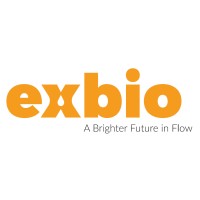CD20 Monoclonal / PerCP / 2H7
Product Details
| Description | CD20 is a cell surface 33-37 (depending on the degree of phosphorylation) kDa non-glycosylated surface phosphoprotein expressed on mature and most malignant B cells, but not stem cells or plasma cells (low number of the CD20 has been also detected on a subpopulation of T lymphocytes and it can be expressed on follicular dendritic cells). Its expression on B cells is synchronous with the expression of surface IgM. CD20 regulates transmembrane calcium conductance (probably functioning as a component of store-operated calcium channel), cell cycle progression and B-cell proliferation. It is associated with lipid rafts, but the intensity of this association depends on extracellular triggering, employing CD20 conformational change and/or BCR (B cell antigen receptor) aggregation. After the receptor ligation, BCR and CD20 colocalize and then rapidly dissociate before BCR endocytosis, whereas CD20 remains at the cell surface. CD20 serves as a useful target for antibody-mediated therapeutic depletion of B cells, as it is expressed at high levels on most B-cell malignancies, but does not become internalized or shed from the plasma membrane following mAb treatment. | |
|---|---|---|
| Conjugate | PerCP | |
| Clone | 2H7 | |
| Target Species | Human, Non-Human Primate | |
| Applications | FC, ICC, IP, IHC-Fr | |
| Supplier | EXBIO | |
| Catalog # | Sign in to view product details, citations, and spectra | |
| Size | ||
| Price | ||
| Antigen | ||
| Host | ||
| Isotype |
About CD20
This gene encodes a member of the membrane-spanning 4A gene family. Members of this nascent protein family are characterized by common structural features and similar intron/exon splice boundaries and display unique expression patterns among hematopoietic cells and nonlymphoid tissues. This gene encodes a B-lymphocyte surface molecule which plays a role in the development and differentiation of B-cells into plasma cells. This family member is localized to 11q12, among a cluster of family members. Alternative splicing of this gene results in two transcript variants which encode the same protein. [provided by RefSeq, Jul 2008]
This gene encodes a member of the membrane-spanning 4A gene family. Members of this nascent protein family are characterized by common structural features and similar intron/exon splice boundaries and display unique expression patterns among hematopoietic cells and nonlymphoid tissues. This gene encodes a B-lymphocyte surface molecule which plays a role in the development and differentiation of B-cells into plasma cells. This family member is localized to 11q12, among a cluster of family members. Alternative splicing of this gene results in two transcript variants which encode the same protein. [provided by RefSeq, Jul 2008]
About PerCP
Peridinin-Chlorophyll-Protein (PerCP) is a red-emitting fluorescent protein isolated from algae that can be excited by the 488 nm blue laser and captured with a 670/30 nm bandpass filter. PerCP exhibits a large Stokes' Shift, with an excitation peak at 482 nm and an emission peak at 675 nm. PerCP is was historically used in flow cytometry, however it is highly susceptible to photobleaching and has poor stability. Alternatives like BB700, NovaFluor Blue 690 or PerCP-eFluor™ 710 are preferred. PerCP is a generic dye that has no sole manufacturer.
Peridinin-Chlorophyll-Protein (PerCP) is a red-emitting fluorescent protein isolated from algae that can be excited by the 488 nm blue laser and captured with a 670/30 nm bandpass filter. PerCP exhibits a large Stokes' Shift, with an excitation peak at 482 nm and an emission peak at 675 nm. PerCP is was historically used in flow cytometry, however it is highly susceptible to photobleaching and has poor stability. Alternatives like BB700, NovaFluor Blue 690 or PerCP-eFluor™ 710 are preferred. PerCP is a generic dye that has no sole manufacturer.
Experiment Design Tools
Panel Builders
Looking to design a Microscopy or Flow Cytometry experiment?
Validation References
Reviews & Ratings
| Reviews |
|---|
Looking for more options?
2722 CD20 antibodies from over 59 suppliers available with over 160 conjugates.





